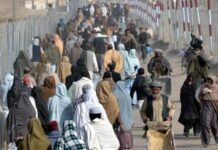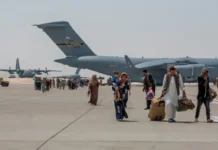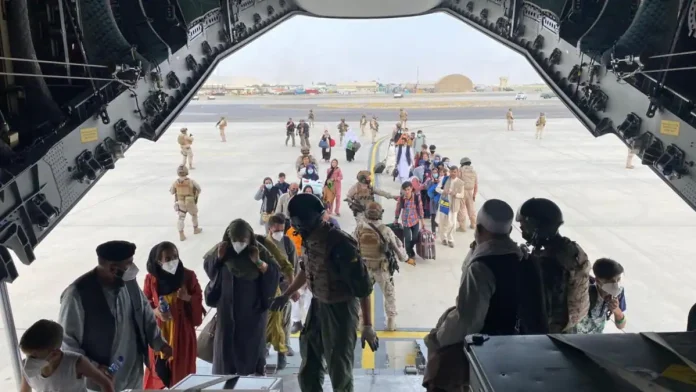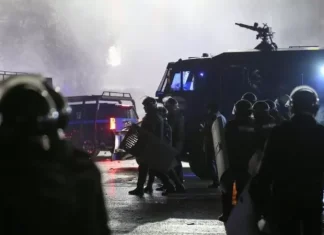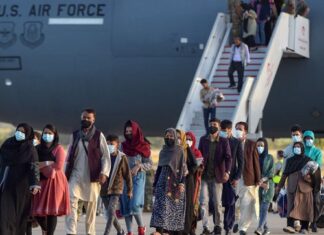The US State Department says it is working to speed up the process of transferring at-risk Afghans, but is not disclosing details for security reasons.
A spokesman for the ministry told VOA: “We are working to provide safe passage for US citizens, US permanent resident (green card) holders, special immigrant visa holders and Afghan partners and eligible family members who want to leave Afghanistan. to facilitate.”
The spokesperson of the US State Department said that they have increased their resources for faster processing of eligible Afghans, especially Special Immigrant Visa (SIV) holders outside the US. According to him, these measures will maximize the handling of immigration and resettlement requirements.
But he added, “All [asylum seekers] bound for the United States are still subject to extensive biographical and biometric security checks conducted by law enforcement, counterterrorism and intelligence agencies.”
The United States last year increased resettlement aid by $1.2 billion and expanded processing facilities for refugees, including Al-Siliyyeh camp in Doha.
The spokesperson of the US State Department said that the innovations related to handling refugees in Al-Siliyeh camp have “significantly” shortened the stay of refugees in this camp, and most of the people whose documents are considered leave the camp within 30 to 60 days.
He added that efforts are underway to follow the steps of Afghan allies in other third countries and to improve the resettlement system in America, and the only thing that will not change is “our commitment to protect the safety of Americans”.
US officials told the Washington Post in March that about 7,000 Afghans are waiting to be resettled in US bases, but the Foreign Ministry spokesman declined to comment.
Aid agencies say the Afghans who have been transferred to the United States are warning about the future of Afghans who are at risk and stuck in Afghanistan.
Ryan Morrow, head of Afghanistan Freedom Project, told Voice of America: “We are trying to find evacuation opportunities. But so far, we have not succeeded.”
Moreau said some people flee Afghanistan and go to Iran and Pakistan, where they find themselves in “terrible” conditions. “[They] are often beaten and tortured and then sent back to Afghanistan. So those aren’t routes that we necessarily recommend for people, but some people are willing to try it,” he added.
Meanwhile, the spokesperson of the Ministry of Foreign Affairs said that the United States encourages Afghanistan’s neighbors to keep their borders open for Afghans to enter.
A year after the chaotic and deadly withdrawal of American troops from Afghanistan, there are still different opinions and assessments on this issue in the United States, mostly of partisan origin.
Critics condemn the evacuation operation of more than 124,000 American citizens, Afghans cooperating with American forces and others in August 2021 as poor planning and bad execution, and they believe that the complete withdrawal of American forces from Afghanistan shows the lack of commitment of the United States to the countries Middle East and this country’s unwillingness to stand by its partners in times of need.
But the supporters of the withdrawal of American forces from Afghanistan argue that the time for the end of America’s longest war has come, and that staying troops in Afghanistan would endanger their lives and would not be of much benefit.







